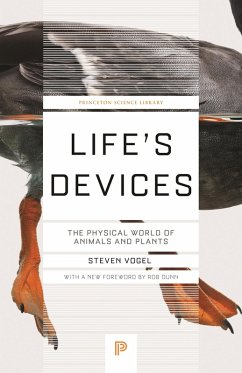An entertaining and informative book that explores how living things contend with nonbiological realityLife on Earth is subject to the pull of gravity, the properties of air and water, and the behavior of diffusing molecules, yet such physical factors are constraints that drive evolution and offer untold opportunities to creatures of all sizes. In this lively introduction to the science of biomechanics, Steven Vogel invites you to wonder about the design of the plants and animals around us. You will learn why a fish swims more rapidly than a duck can paddle, why healthy trees more commonly uproot than break, how sharks manage with such flimsy skeletons, and why a mouse can easily survive a fall onto any surface from any height. With an illuminating foreword by Rob Dunn, this Princeton Science Library edition of Life's Devices includes examples from every major group of animals and plants along with illustrative problems and suggestions for experiments that require only common household materials.
Hinweis: Dieser Artikel kann nur an eine deutsche Lieferadresse ausgeliefert werden.
Hinweis: Dieser Artikel kann nur an eine deutsche Lieferadresse ausgeliefert werden.








